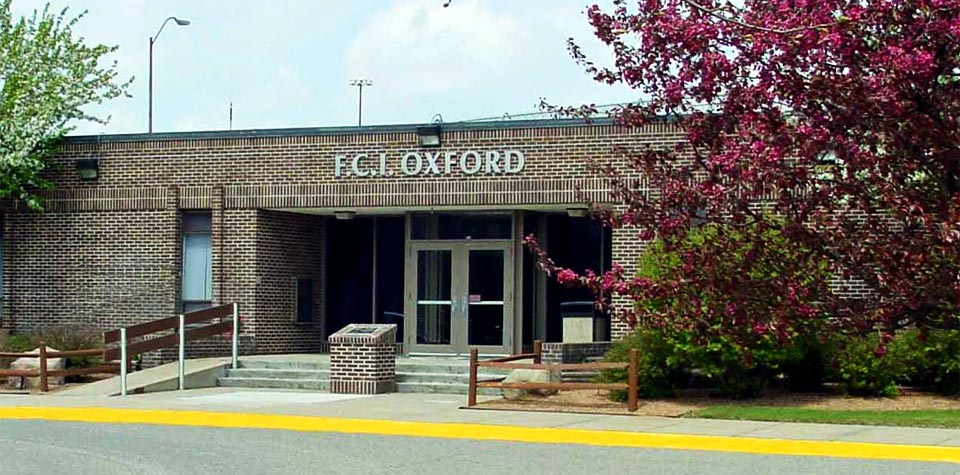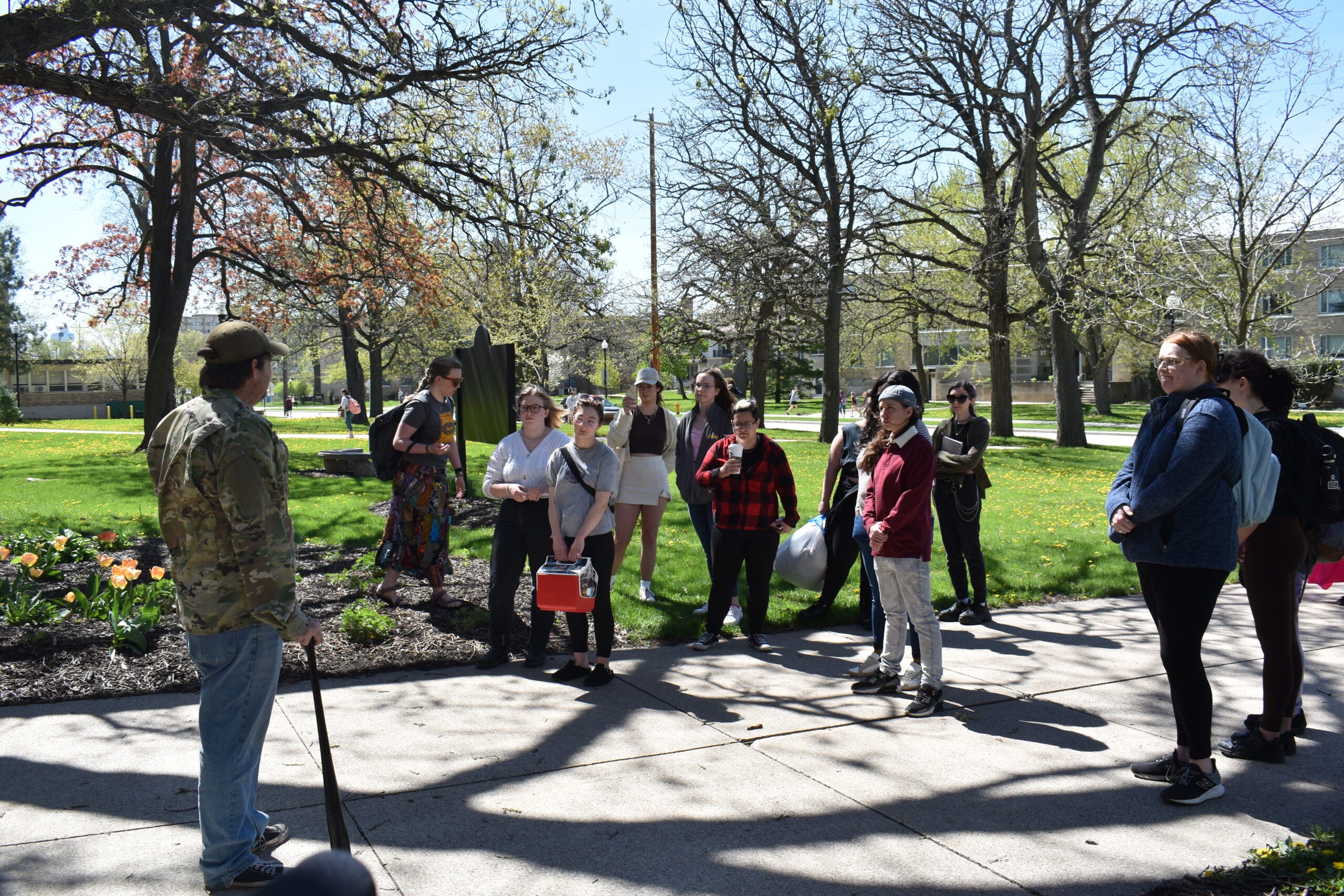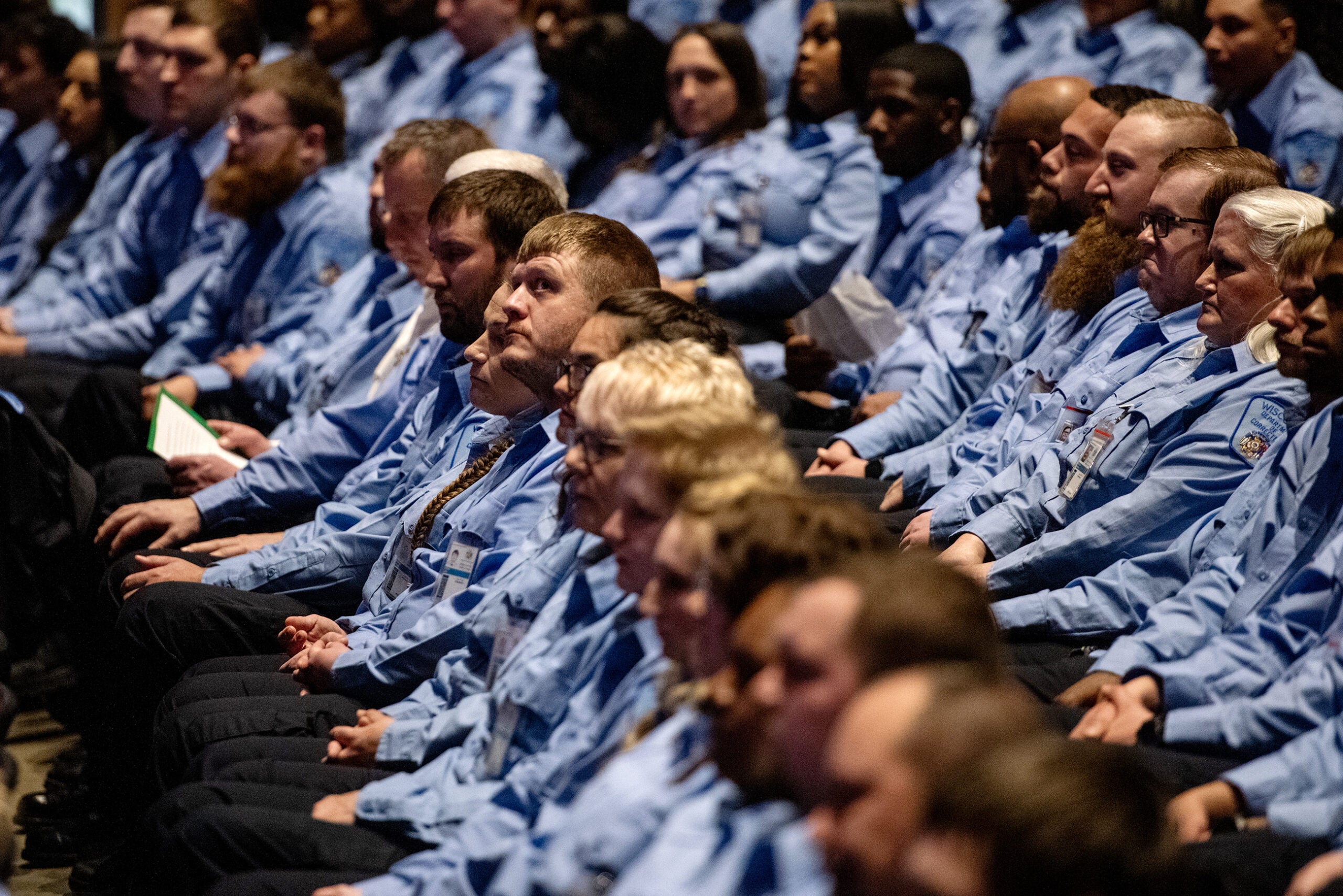The best predictor of success for inmates after release from prison is whether or not they can find a job. That shouldn’t be a problem for the eight men at the Racine Correctional Institution who just completed a six-month training course in computer-controlled machining. They celebrated their graduation at a ceremony this week..
They marched into the prison visitors’ room single file wearing blue gowns and mortarboards with tassels instead of their prison greens. Course instructor Kevin Fulsom handed out the diplomas to the inmate graduates, who were greeted with applause.
Jamie DeJesus, 38, has spent most of the last 10 years in prison for selling cocaine. But this week, he was class valedictorian, proud of the skills he’d acquired.
Stay informed on the latest news
Sign up for WPR’s email newsletter.
“I know what mills and lathes are and, please trust me when I tell you, the function of a lathe is not to lathe stock but the process is actually referred to as turning. And the CNC lathe is referred to as a turning center. It’s similar to the way we are actively turning our lives around,” DeJesus said.
The certificate he and his seven fellow inmates have earned qualifies them for entry-level positions with starting pay likely ranging from $12 to $20 an hour. There are dozens of such openings on the state’s jobs website and DeJesus is anxious to finish his sentence and start applying for them.
“The goal is now to get me to a minimum security prison so I can work and make the transition period a little more easy for me and my family,” he said. “If I can get a chance of 12 months to work and put a little money away, it’s gonna help all the more when I get out.”
Lt. Gov. Rebecca Kleefisch was a guest speaker at the graduation. She said the best way to reduce recidivism in the state prison system is to treat inmates like they are future taxpayers.
“These are in-demand jobs, in-demand skills and now we have some in-demand potential employees,” she said. “Because this isn’t about paying back the money it’s took in order to house them or provide meals or training. This is about having a place in society and avoiding recidivism.”
Recidivism rates in Wisconsin have dropped by 10 percent over the past decade. Still, a recent study found that more than one-third of the inmates released in 2010 were back in prison three years later. Department of Corrections Secretary Ed Wall said vocational programs like this one can help change that. But he said it’s costly. The mobile machining lab these inmates studied in cost $300,000 and can only handle a class of 12 inmates at a time.
“It becomes a budget issue, but this is a proof of concept, really, is what we’re working on with this to see, are there other things that we can create, other types of mobile lab platforms that we can move from institution to institution and bring the training with us,” Wall said.
One of this week’s inmate graduates, 28-year-old Jonathon Luna, is nearing the end of his sentence. He said he’d like to see the state put more money into programs like this one.
“Honestly, I think vocational programs in any type of institution should be where the money should be at,” Luna said. “Having an opportunity like this to earn money to stay home, not return and do something positive with your life is just outstanding.”
Luna said he’s already looking at some job offers near his home in Pewaukee that could lead to an apprenticeship and a chance to work toward an advanced degree.
“So this is not the end, it’s just a starting point,” he said.
The mobile training lab will stay at the Racine prison for at least another six months. Twelve more inmates have already signed up to take the computer machining program.
Wisconsin Public Radio, © Copyright 2025, Board of Regents of the University of Wisconsin System and Wisconsin Educational Communications Board.







